Retreat Agenda
Breakfast & Registration
8:30 a.m.–9:20 a.m.
Check-in for the day and connect with fellow STTR members and guests!
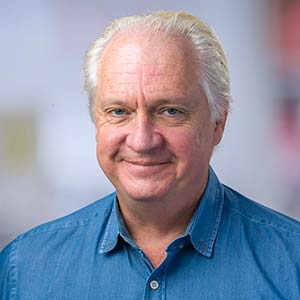
Opening Remarks
9:20 a.m.–9:30 a.m.
Eric Holland, MD, PhD
Senior Vice President and Director, Human Biology Division, Fred Hutch
Endowed Chair in Cancer Biology, Fred Hutch
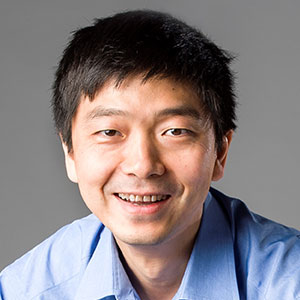
Keynote Address: Multimodal Generative AI for Precision Health
9:30 a.m.–10 a.m.
Hoifung Poon, PhD
General Manager of Health Futures, Microsoft
The confluence of technological advances and social policies has led to rapid digitization of multimodal, longitudinal patient journeys, such as electronic medical records (EMRs), imaging, and multiomics. Our overarching research agenda lies in advancing multimodal generative AI for precision health, where we harness real-world data to pretrain powerful multimodal patient embedding, which can serve as digital twins for patients. This enables us to synthesize multimodal, longitudinal information for millions of cancer patients, and apply the population-scale real-world evidence to advancing precision oncology in deep partnerships with real-world stakeholders such as large health systems and life sciences companies.
Morning Break
10 a.m.–10:10 a.m.
Innovation Through Collaboration
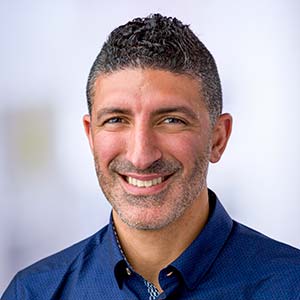
Presentation Title TBD
10:10 a.m.–10:30 a.m.
Cyrus Ghajar, PhD
Professor, Public Health Sciences Division, Fred Hutch
Professor, Human Biology Division, Fred Hutch
Member, Translational Data Science Integrated Research Center (TDS IRC), Fred Hutch
Peter S. Lefkarites Memorial Endowed Chair, Fred Hutch
Presentation Blurb TBD
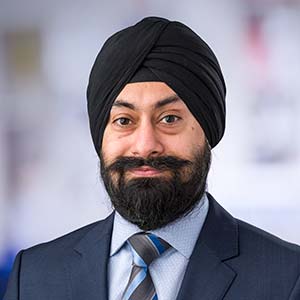
Presentation Title TBD
10:30 a.m.–10:50 a.m.
Taran Gujral, PhD
Associate Professor, Human Biology Division, Fred Hutch
Presentation Blurb TBD
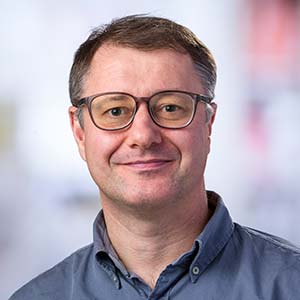
Profiling human tumor-specific T cell responses for cancer biomarker discovery
10:50 a.m.–11:10 a.m.
Evan Newell, PhD
Professor, Vaccine and Infectious Disease Division, Fred Hutch
Joint Professor, Herbold Computational Biology Program, Public Health Sciences Division, Fred Hutch
Member, Immunotherapy Integrated Research Center (IIRC), Fred Hutch
Member, Pathogen-Associated Malignancies Integrated Research Center (PAM IRC), Fred Hutch
An overview of the Newell lab’s approaches for analyzing tumor-specific immune responses in the context of various cancers as well as a discussion of recent advances in the use of spatial transcriptomics, high dimensional flow cytometry and TCR sequencing based approaches to facilitate coordinated immune profiling efforts.

Why an Institute Now? The MC3 Experience
11:10 a.m.–11:30 a.m.
MC3 Leadership Team:
Paul Nghiem, MD, PhD, Faculty Founder & Director
Candice Church, PhD, Director of Scientific Research
Rima Kulikauskas, BS, Director of Specimen Repository
Krista Lachance, MS, Director of People & Programs
The Merkel Cell Carcinoma Collaborative (MC3) Institute is dedicated to advancing research and improving outcomes for MCC patients through cutting-edge translational research. Based at the University of Washington and Fred Hutch Cancer Center, MC3 fosters collaboration among scientists and clinicians to drive innovation in patient care. This talk will provide an overview of MC3’s mission, key initiatives, and opportunities for engagement in this growing research community.
Lunch & Museum Tour
11:30 a.m.–12:30 p.m.
Clinical Innovation
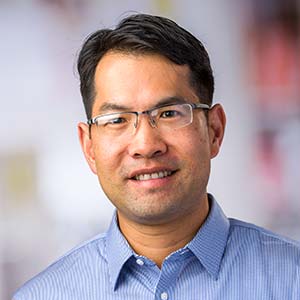
Bladder cancer research in the Pacific Northwest
12:30 p.m.–12:50 p.m.
Andrew Hsieh, MD
Professor and Associate Director, Human Biology Division, Fred Hutch
Professor, Clinical Research Division, Fred Hutch
Multidisciplinary work highlighting the collaborative work by the UW/Fred Hutch Bladder Cancer Group.
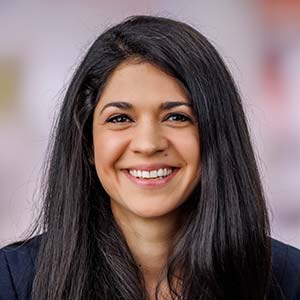
Presentation Title TBD
12:50 p.m.–1:10 p.m.
Sita Kugel, PhD
Associate Professor, Human Biology Division, Fred Hutch
Presentation Blurb TBD
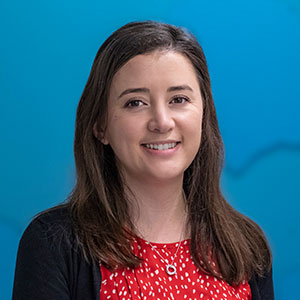
Cell Therapy Engineering Strategies to Overcome Tumor Microenvironment Obstacles
1:10 p.m.–1:30 p.m.
Shannon Oda, PhD
Principal Investigator, Ben Towne Center, Seattle Children’s Research Institute
Assistant Professor, Department of Pediatrics, University of Washington
The tumor microenvironment presents several obstacles, including inhibitory immune cells, lack of support for antitumor immunity, and tumor heterogeneity. To overcome this issue, we developed T cell engineering strategies that increase antitumor function and catalyze a multicellular antitumor immune response, providing enhanced therapeutic efficacy against hematological and solid tumors.
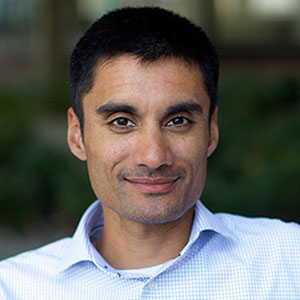
Anthracyclines: The Original Epigenetic Therapy
1:30 p.m.–1:50 p.m.
Jay Sarthy, MD, PhD
Investigator, Ben Towne Center
Assistant Professor, University of Washington School of Medicine
Chemotherapy remains the backbone of modern oncology. We have identified a novel mechanism by which conventional chemotherapeutics including doxorubicin kill cancer cells, by damaging chromatin. Targeting this pathway results in impaired ribosomal biogenesis and cancer cell death in pediatric and adult cancer models while incurring minimal systemic toxicity.
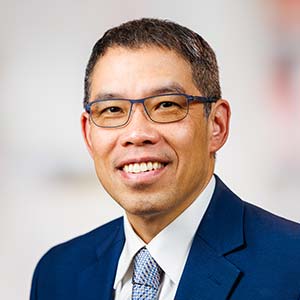
Presentation Title TBD
1:50 p.m.–2:10 p.m.
Lawrence Fong, MD
Scientific Director, Immunotherapy Integrated Research Center (IIRC), Fred Hutch
Professor, Translational Science and Therapeutics Division, Fred Hutch
Bezos Family Distinguished Scholar in Immunotherapy, Fred Hutch
Presentation Blurb TBD
Afternoon Break
2:10 p.m.–2:20 p.m.
Innovative Technologies
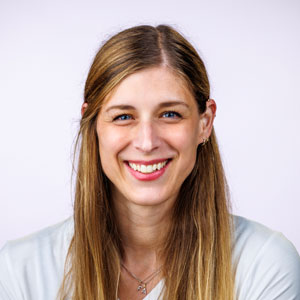
Presentation Title TBD
2:20 p.m.–2:40 p.m.
Kristy Lastwika, PhD
Assistant Professor, Translational Science and Therapeutics Division, Fred Hutch
Joint Assistant Professor, Public Health Sciences Division, Fred Hutch
Member, Immunotherapy Integrated Research Center (IIRC), Fred Hutch
Presentation Blurb TBD
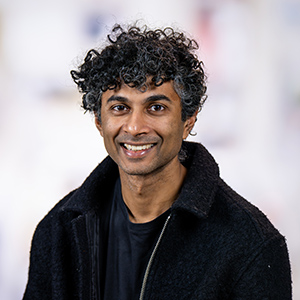
Reinventing the test tube
2:40 p.m.–3:00 p.m.
Sanjay Srivatsan, PhD
Assistant Professor, Basic Sciences Division, Fred Hutch
Assistant Professor, Herbold Computational Biology Program, Public Health Sciences Division, Fred Hutch
Member, Translational Data Science Integrated Research Center (TDS IRC), Fred Hutch
Single-cell genomics methods have unveiled the heterogeneity present in seemingly homogenous populations of cells, however, these techniques require meticulous optimization. How exactly does one handle and manipulate the biological contents from a single cell? Here, we introduce and characterize a novel semi-permeable capsule (SPC), capable of isolating single cells and their contents while facilitating biomolecular exchange based on size-selectivity. We use this platform to grow clonal colonies of cells and perform single cell genome sequencing both from amplicons and the whole genome.
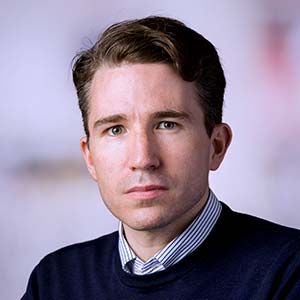
Advancing Genitourinary Tumor Diagnostics with Digital Pathology
3:00 p.m.–3:20 p.m.
Michael Haffner, MD, PhD
Assistant Professor, Human Biology Division, Fred Hutch
Assistant Professor, Clinical Research Division, Fred Hutch
Member, Translational Data Science Integrated Research Center (TDS IRC), Fred Hutch
Digital pathology is revolutionizing tumor diagnostics by improving accuracy, efficiency, and reproducibility. In this talk, we will explore applications such as AI-powered image analysis and image derived biomarkers in the space of prostate and bladder cancer. These advancements enhance diagnostic precision and prognostication, with significant implications for both research and clinical care.
Closing Remarks, Poster Session & Reception
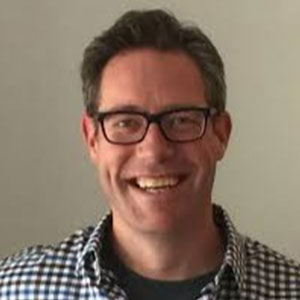
Overview of Fred Hutch Philanthropy
3:20 p.m.–3:35 p.m.
Kjell Oswald
Director, Philanthropic Gifts at Fred Hutch
Closing Remarks
3:35 p.m.–3:45 p.m.
Snehal Joshi, PhD
Associate Director, Translational Research & Operations, Fred Hutch